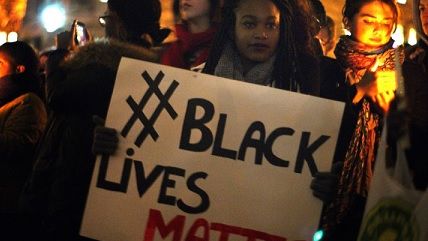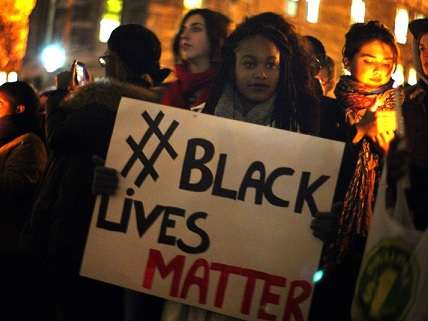The 1994 Crime Bill Was A Liberal Policy
Lives should matter more than ideologically-driven revisionism.


Bill Clinton has become part of the 2016 election news cycle once again. He confronted protesters associated with Black Lives Matter who were denouncing the 1994 crime bill, a major piece of legislation that instituted a lot of the policies that drove over-criminalization and hyper-incarceration in the last twenty years.
"You're defending the people who kill the lives you say matter," Clinton told the protesters, attempting to link tough on crime policies (which are popular in urban area and among urban Democratic politicians despite the mainstream rhetoric) to crime reduction.
Twenty years ago the 1994 crime bill passed with broad support. It has become an issue this election cycle given increased interest in issues of police and criminal justice reform. Yet arguments over the crime bill have avoided engaging the uncomfortable truth about the role of bigger government in promoting police violence in favor of rhetorical acrobatics.
For example even while acknowledging the 1994 crime bill was largely "a sincere attempt to respond to a real epidemic of violent crime," Slate's Jameille Bouie has to insist there were "bad actors" as well. The focus on intentionality in politics is a distraction. The effects policies have on real people matter, not the intentions of the politicians first proposing them. Evaluating how policies will play out on the ground is a more effective way of protecting people from government abuses than the parlor game of trying to divine what's in someone's heart.
It matters. One revisionist tact taken with the 1994 crime bill is that it was never supported by liberals. Salon, for example, insists Bill Clinton's "right-leaning New Democrat policy record is a bad fit for today's liberal politics." Clinton blames Republicans for forcing him to add tougher provisions to the bill. Yet the 1994 crime bill went through Congress when Democrats controlled both the House and Senate. It was supported by Democrats across the political spectrum, from center-left to hard left. Every member of the leadership of the progressive-leaning Congressional Black Caucus voted for the 1994 crime bill, even as their chairman at the time has now tried to deny he voted in favor of it. 75 percent of House Democrats voted for the bill. They were joined by 46 Republicans and one Independent, the democratic socialist Bernie Sanders.
Hillary Clinton receives more focus on the 1994 crime bill because her husband signed it into law, but Bernie Sanders actually voted for the legislation. He says now that was because of provisions about violence against women, but laws are not passed a la carte. Sanders has also claimed police departments are just examples of everyday socialism. Nothing about his rhetoric or policy positions suggests he'd even consider commonsense reform proposals from Black Lives Matter like reforming the police union contracts that often allow officers to kill with almost complete impunity.
Such exercises aren't just a distraction from solutions like the ones Black Lives Matter's Campaign Zero have proposed, they provide cover for future policy pushes that will also have the effect of exacerbating police violence. Victims of police brutality can no longer afford to have progressives deny that there's nothing about the good intentions of their policies that inoculates them from causing more government violence when they create the legal opportunity for such, especially in communities of poor and marginalized people.


Show Comments (102)